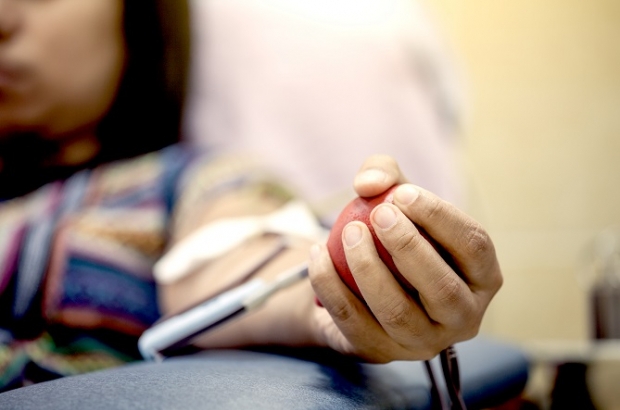- Daily & Weekly newsletters
- Buy & download The Bulletin
- Comment on our articles
Red Cross launches new blood donation campaign
Belgium’s Red Cross blood service has launched a campaign to promote blood donation, in response to the continuing shortage of rare blood groups, particularly when treating sickle cell anaemia.
Entitled "A thousand reasons to give blood", the campaign is aimed especially at people of African origin. Their donations are much in demand, “as they are more likely to have rare blood groups”, the organisation said.
While anyone can have an ABO blood group or one of the numerous sub-groups - they number as many as 300 - they are not distributed with the same frequency around the world.
“This phenomenon is universal and constitutes a public health issue because of the migratory flows,” said the Red Cross.
The organisation will host a special day on 12 May in Liège to raise awareness of the need for donors. While the service and how it works is well known, it says: “The aim of this campaign is to increase confidence in the Red Cross blood service and to emphasise the need to donate.”
The campaign ends on 31 May, but volunteers can contact one of fixed centres in Belgium all year round.
The Red Cross is particularly interested by a blood group, FO, Red Cross spokesperson Thomas Paulus explained. “This can be seen in 70% of people from the African diaspora, but only 2% of Caucasians have this blood type. The difference is enormous.”
The FO blood type is particularly sought after as it is essential to treat sickle cell anaemia, the most widespread genetic disease in Belgium.
This blood disorder - a malformation of the red blood cells - affects people from countries with a high prevalence of malaria.
“We are thinking here of the African diaspora in Belgium, but not only them,” Paulus said. “These people need extremely regular transfusions. We’re talking about six to 11 bags of blood every six to eight weeks and this is a lifelong treatment.
"That’s thousands of bags over a lifetime. So we’re really launching an awareness campaign aimed at the African diaspora to motivate them to donate blood so that we have enough."
Group O-negative blood donors, also known as "universal donors", can give blood to anyone, but there is not enough to compensate the scarcity of other blood groups, Paulus continued.
“This group is already under pressure generally, as it is the first to be used in life-threatening emergencies or when the blood group requested by a hospital is not in stock.
"And it’s true that this is very frequently the case for the blood group involved in sickle cell anaemia. So around 15% to 20% of our negative stock is used for this.
“So O-negative works, there’s no problem with it,” Paulus said. “But it’s clear that we’d prefer to be able to relax the pressure a little on the O-negatives.
"Above all, it is always better to transfuse a person with the blood group closest to your own… in this case, to transfuse people with sickle cell anaemia with blood from the FO group, from the sub-Saharan diasporas.”
The “A thousand reasons to give blood” campaign also aims to encourage people to give blood and show that it is safe.
“The medical world, especially during the HIV years, strongly stigmatised the African diaspora,” Paulus said. “We need to be able to reassure this population.”
Belgians are also invited to give plasma – a yellowish liquid that makes up 55% by volume of blood, Paulus said.
Called "the gift of life", plasma helps to prevent stroke, heart attack, and other heart diseases, cleanses the blood of bad cholesterol, reduces the risk of blood clots, normalises blood pressure, and minimises seasonal allergies. It is also vital to help children suffering from auto-immune diseases.



















